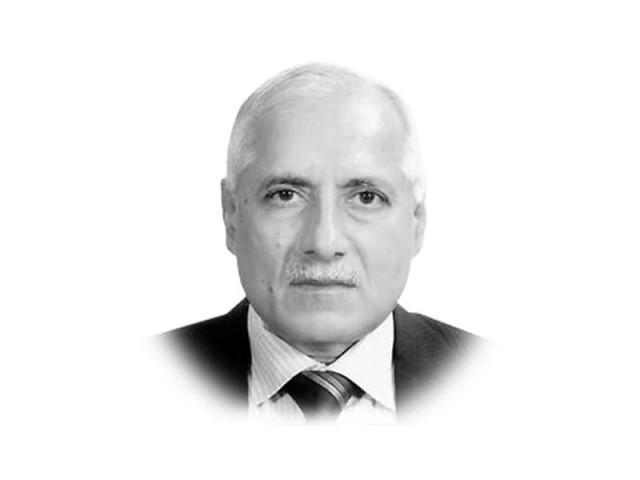Stop paralysing the police
Political parties should, through their manifestos, make it clear that police will not be used to thrash opponents.

The writer is a former inspector general of police, Punjab and author of Pakistan: The Political Economy of Lawlessness (Oxford University Press, 2002)
This is not to deny the fact that these incidents occurred because — apart from the state’s failure to check atrocities targeted towards non-Muslims, Shias and other marginalised groups — agencies and individuals who could have undertaken preventive measures did not pull together in the same direction. The police is one of those agencies. However, it is important to note that the professional autonomy of the police has been an anathema to successive governments, eager to use them for harassing political opponents, winning elections and achieving extralegal objectives. The Police Order 2002, in its original form, contemplated a dynamic, professional, accountable and people-friendly police service. The subsequent amendments and a complete U-turn by the provincial government in Sindh resulted in the revival of the colonial Police Act of 1861. In Punjab, although the political leadership did not take such a drastic step, the police were never encouraged to adopt a proactive policing style. As a result, the rank and file of the police lost their drive and commitment to discharge their duties professionally. Though senior and middle-level transfers and postings are done by political chief executives, police chiefs are condemned for the failures of the department by politicians, courts, media and society at large.
Despite the fact that peace, economic, social and cultural developments hinge upon the rule of law, no political party has devised a strategy for the administration of national criminal justice in its manifesto. There is a need for a proper policy geared towards gaining public confidence, achieving greater effectiveness and efficiency for the police service, prosecution agency, courts, prisons and medico-legal services. There is a need to strike a balance between the needs of the community and the rights of individual citizens.
While formulating their manifestos, political parties should consider that the police function is distinguished from all others in the field of public protection and public safety by its reliance upon the minimum and not the maximum use of force. The police have to be subordinate to the decrees of the courts with strict adherence to the essential rule of law and its attachment to the concept of human rights. The police prevent crime, detect offences, maintain order and maintain peace. They do not administer justice, deny civil liberties, engage in reprisals or terrorise communities. Political parties should, through their manifestos, make it abundantly clear that the police will not be used as sticks to thrash opponents of the well-to-do into submission. Political parties must agree to the principle that police functions can be performed by a police force that has a self-contained organisational structure, where there is no distortion of command and no dilution of accountability. The courts must put their support behind a professional and politically-neutral police service. For achieving these goals, intervention form of an overhauling of laws and procedures relating to the system of criminal administration is needed. The intervention should give the democratic national interest a definite preference over the minority group interest of any class of civil servants.
Apart from building national consensus to fight the forces of extremism with full state might, political parties must commit to providing adequate resources for the institutionalisation of community policing involving effective public participation through various techniques of consultation, a balanced media policy, revival of alternative dispute resolution mechanisms, and professional conferences of police officers at the national, provincial and district levels with meaningful agendas. This can go a long way in preserving the rule of law. Last, but not the least, adhoc measures like entrusting police functions to paramilitary forces, like the Rangers and the army, need to be given up.
Published in The Express Tribune, March 23rd, 2013.















COMMENTS
Comments are moderated and generally will be posted if they are on-topic and not abusive.
For more information, please see our Comments FAQ